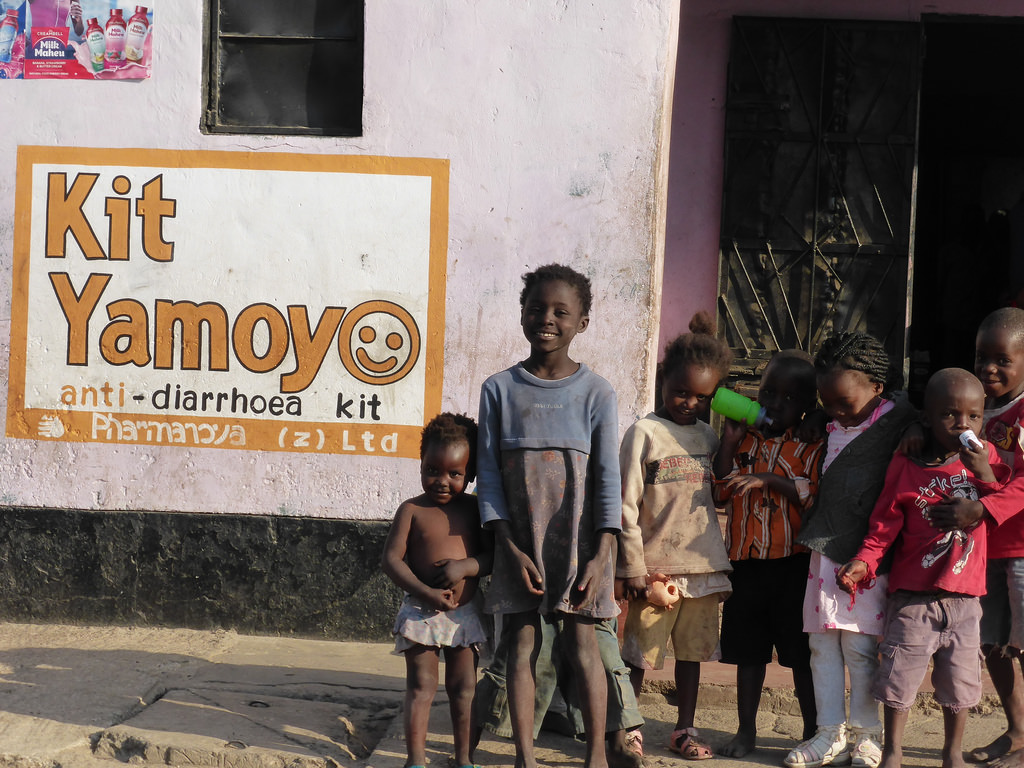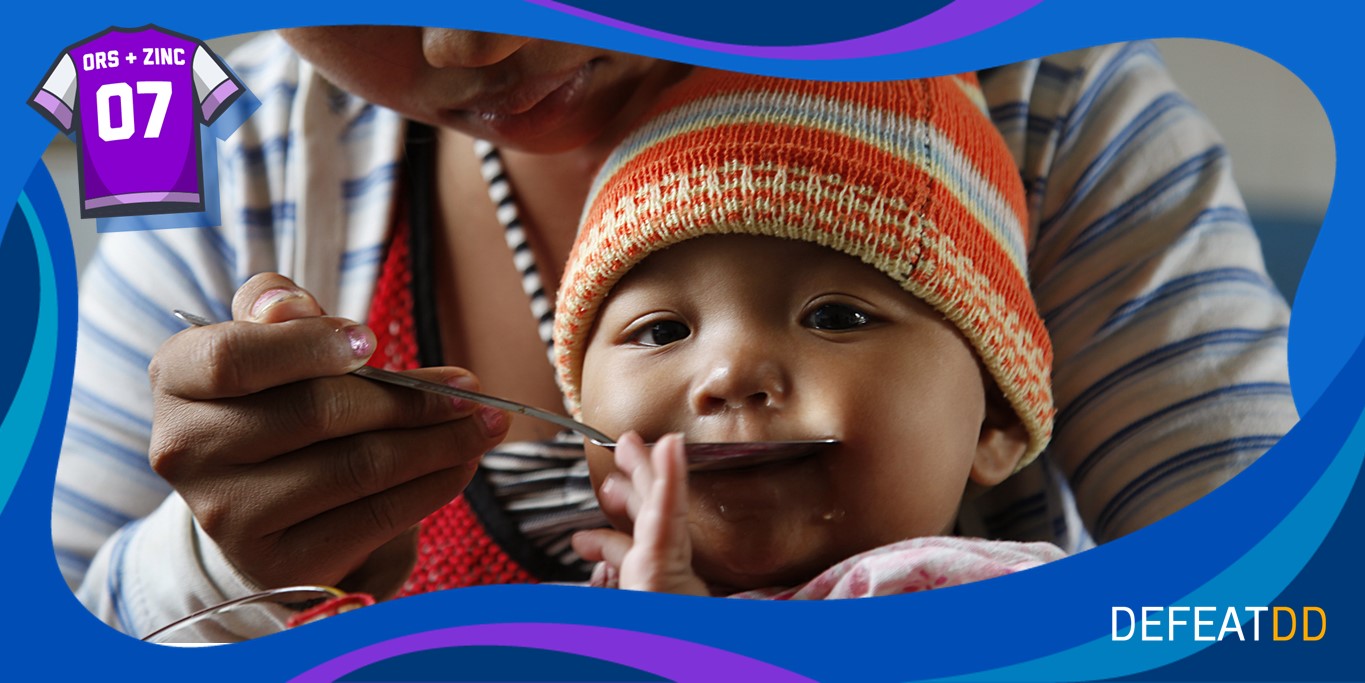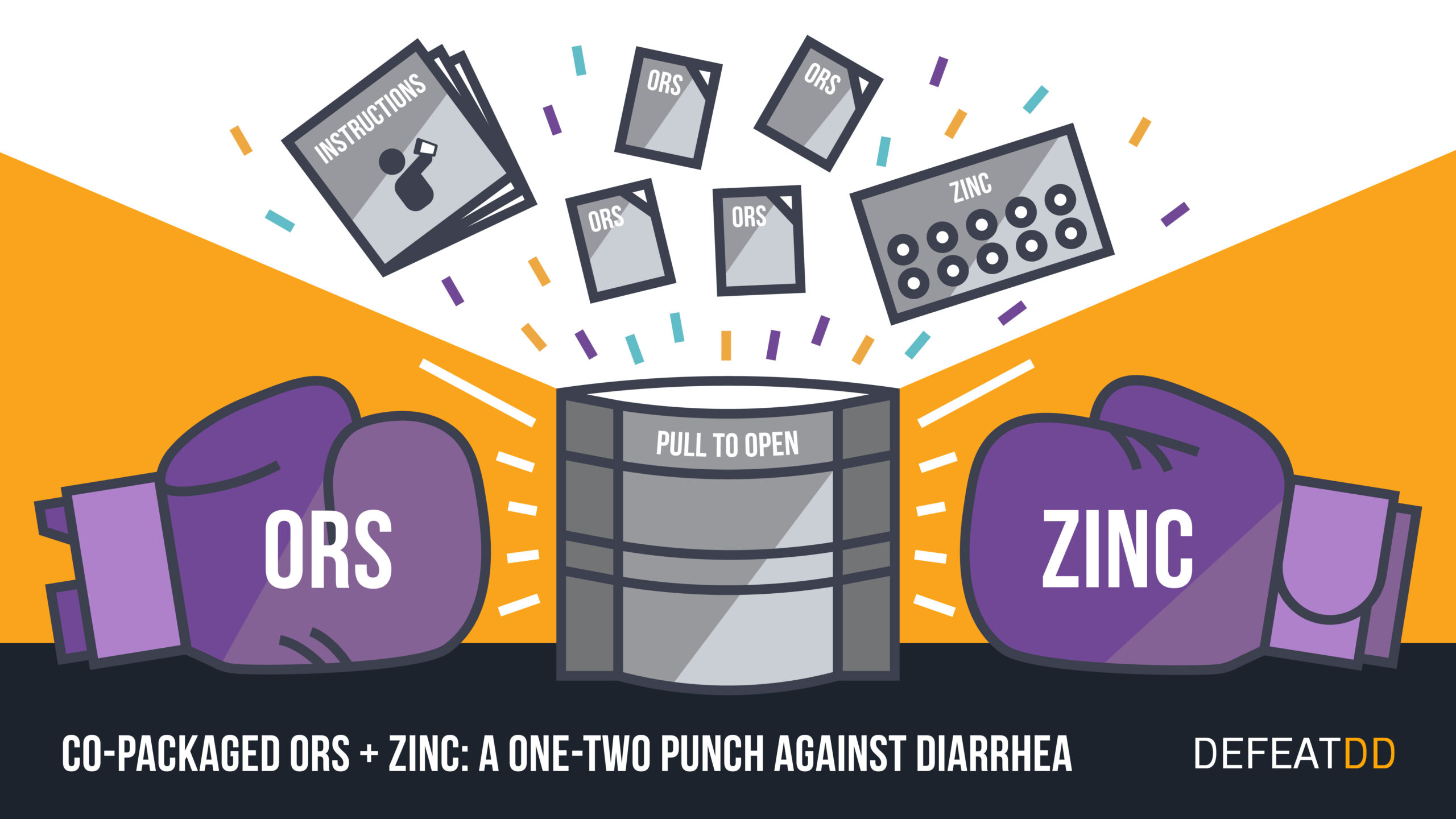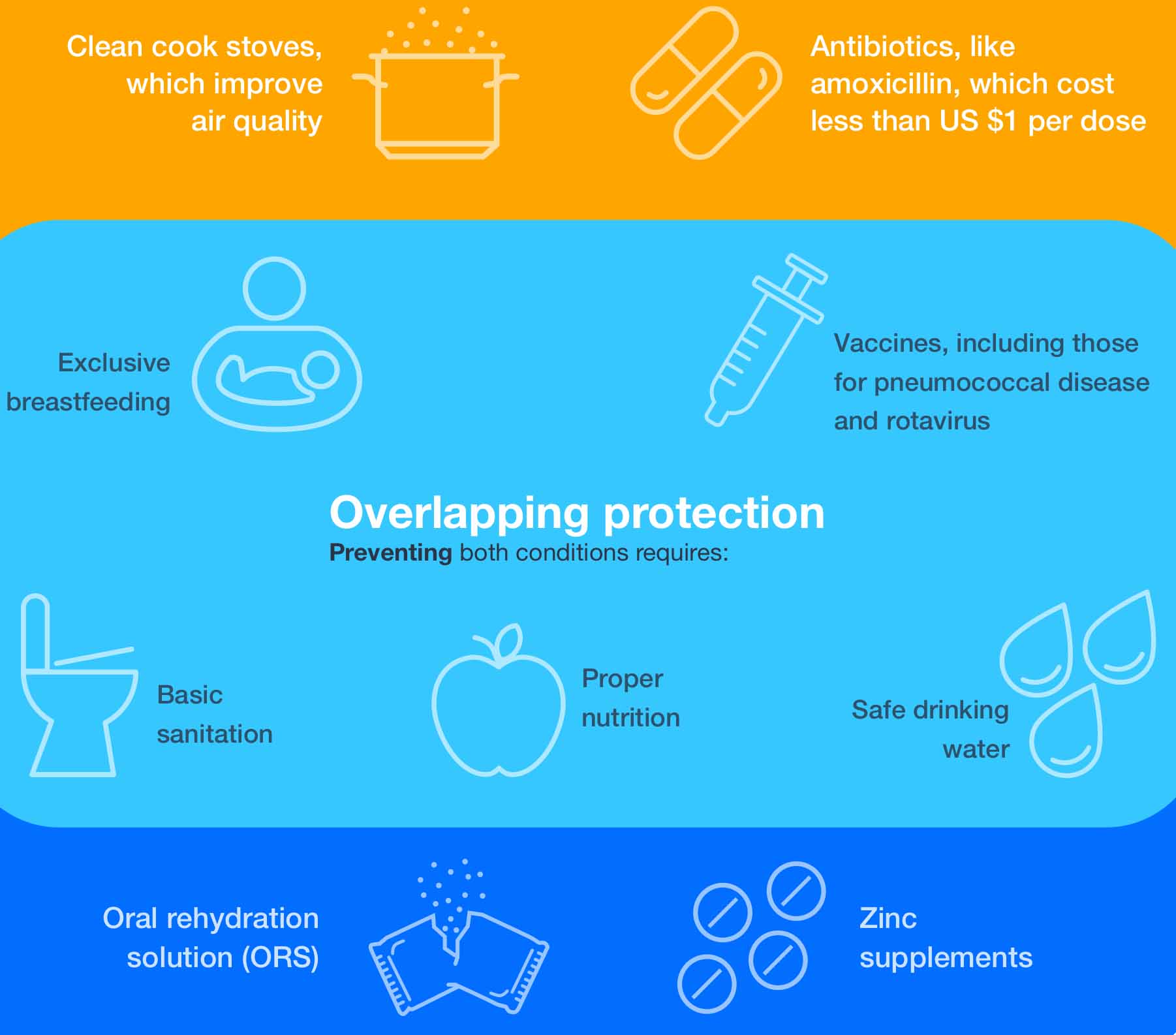
ORS and zinc co-pack for diarrhoea treatment: Taking Zambia experience to scale

Children smile next to a Kit Yamoyo Wall Painting in George Compound, Lusaka, Zambia. Photo credit: ColaLife.
It is literally in-credible that, in 2019, diarrhoea—an easily treatable disease—is still the second biggest infectious killer of children less than five years old. The treatment—oral rehydration salts (ORS) and zinc—is simple, safe, effective, and low-cost. UNICEF and World Health Organization (WHO) have recommended it for nearly 15 years, and is already credited with saving millions of lives.
But today, globally, less than 7% of children with acute diarrhoea get this lifesaving combination therapy. The key barriers include lack of access and incomplete use of both treatments together. My organisation, ColaLife, gets its name from an uncomfortable question: “Why is it that you can get a bottle of Coca-Cola wherever you go in the world but not lifesaving medicines?” This question first came to me when I was working in Northeast Zambia in the mid-1980s. Even as a non-health professional, this fact was inescapable to me; in those days, one in five children died before their fifth birthday.
In 2010, after running a successful voluntary campaign to get Coca-Cola engaged in a discussion about the co-distribution of medicines in developing countries, I teamed up with my wife, Jane, to see if we could transform access to diarrhoea treatment by applying Coca-Cola’s distribution techniques to ORS and zinc. We gave up our jobs and started on the journey of our lives. We got some kick-start funding from UnLtd, a United Kingdom funder of social entrepreneurs, and within 18 months we’d raised the funding to test our ideas out in Zambia, assisted by Rohit Ramchandani, our public health advisor working on his DrPH at the Johns Hopkins Bloomberg School of Public Health.
Fast forward eight years, and Zambia has a locally produced, locally owned, co-packaged ORS/zinc anti-diarrhoea kit. It is called Kit Yamoyo—kit of life—and it is available in supermarkets nationwide and in hundreds of small shops, many of which also sell Coca-Cola. Through our partnership with Coca-Cola in Zambia, we learned how to apply their distribution techniques. A government-branded version of the kit is now produced by the same local manufacturer and is distributed free at health centres. Zambia is also one of a handful of countries to include co-packaged ORS and zinc on its National Essential Medicines List.
 When the ORS + zinc co-pack is available, uptake of both significantly increases. Zambia among the countries leading the charge to include the co-pack on its national list of essential medicines. Learn more: https://www.defeatdd.org/ors-zinc-copack
When the ORS + zinc co-pack is available, uptake of both significantly increases. Zambia among the countries leading the charge to include the co-pack on its national list of essential medicines. Learn more: https://www.defeatdd.org/ors-zinc-copack
At ColaLife, we are now looking at how we can enable others to learn from experience and evidence generated in Zambia to transform access to co-packaged ORS and zinc in their own countries. Our initial strategy, currently being pursued together with partners through the Diarrhea Innovations Group (DIG), housed at PATH, is to add co-packaged ORS and zinc onto the WHO’s Model List of Essential Medicines (EML). In November 2018, DIG successfully submitted an application to add co-packaged ORS and zinc, as an individual medicine, to the WHO EML for Children, and we expect the decision by July 2019.
A positive decision would transform the policy landscape: it would increase awareness of the optimal treatment for diarrhoea, and increasing numbers of countries would follow WHO’s lead by adding co-packaged ORS and zinc to their own National EMLs. This, in turn, would influence national health budgets allocations and the landscape of donor funding. This would stimulate even more interest in the Zambia experience and make it easier for others to adapt and adopt it to their own circumstances.
Ultimately, global level policy change would lead to better awareness, better use, and greater access to this essential treatment for children, families, communities, and countries still carrying the burden of diarrhoea.


 Special feature
Special feature


